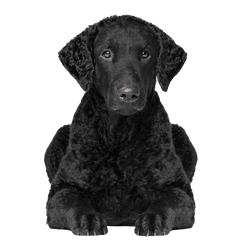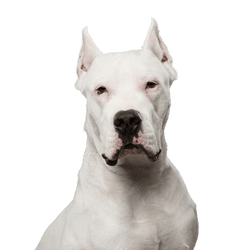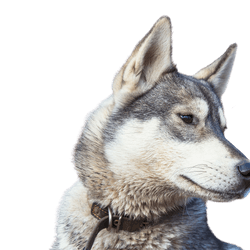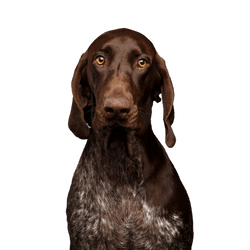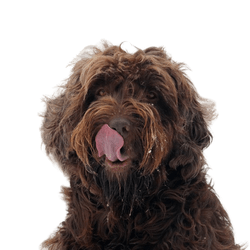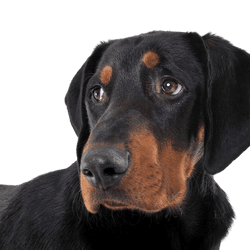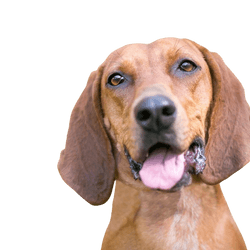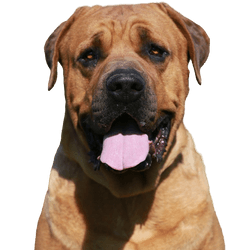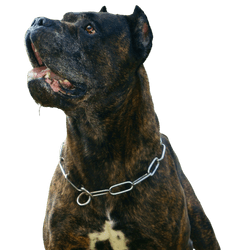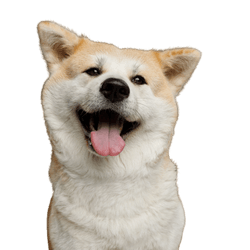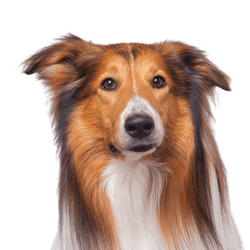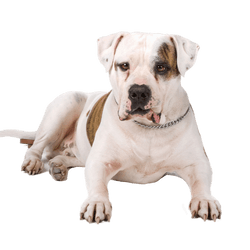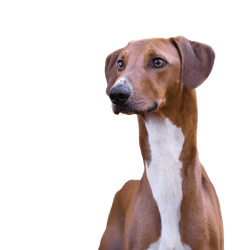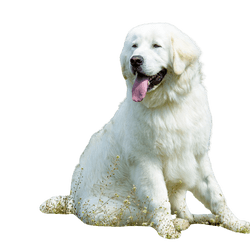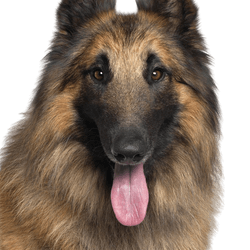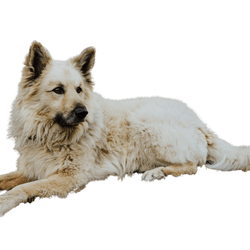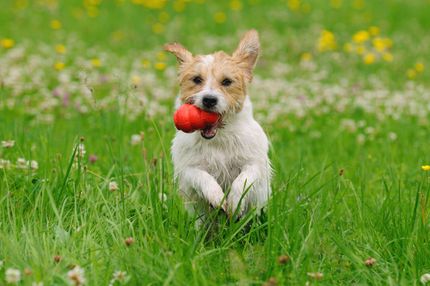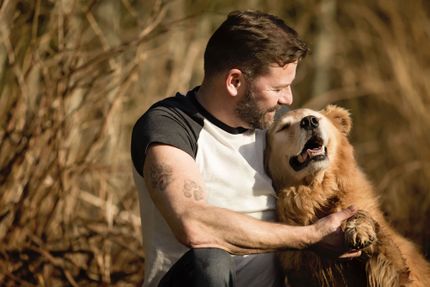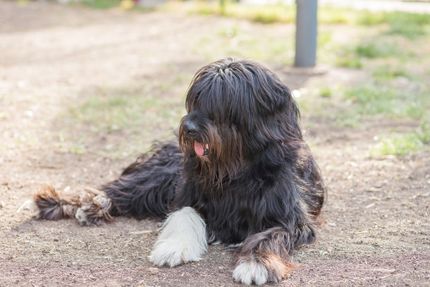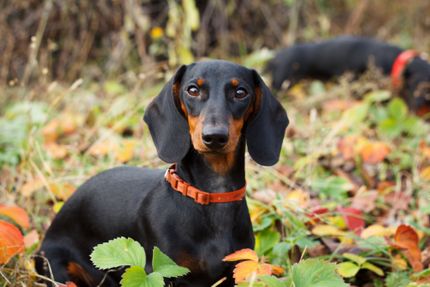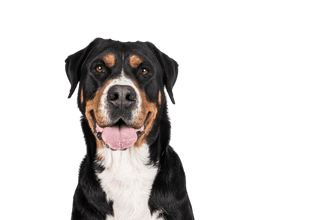
Swiss mountain dog Breed description: Character & Co
Swiss mountain dog
Facts & Origin
The Swiss Mountain Dog - faithful soul and reliable companion
The Swiss Mountain Dog is your perfect companion. To this day it is used as a draft, tracking and rescue dog, but he also finds its place in every family. It prefers to live right by your side and follows you wherever you go.
What is the origin of Swiss Mountain Dogs?
Also known as the Bernese Mountain Dog, Appenzeller Mountain Dog, and Entlebucher Mountain Dog - depending on the place of origin - this breed originally came from Switzerland. It greatly assisted the farmers living there as a herding dog for sheep. Its large and strong build also allowed him to pull smaller wagons for the farmers, giving them a considerable relief in their former daily work. At an international dog show in Bern in 1907, the breed thus quickly garnered enthusiasm and attention, whereupon its fame quickly spread to other regions and it was renamed the Bernese Mountain Dog.
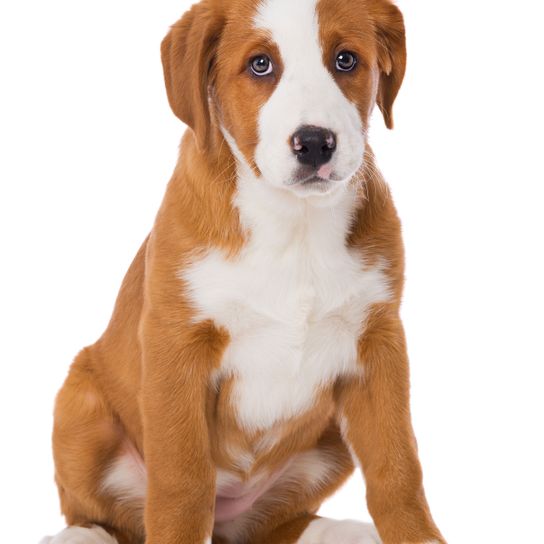
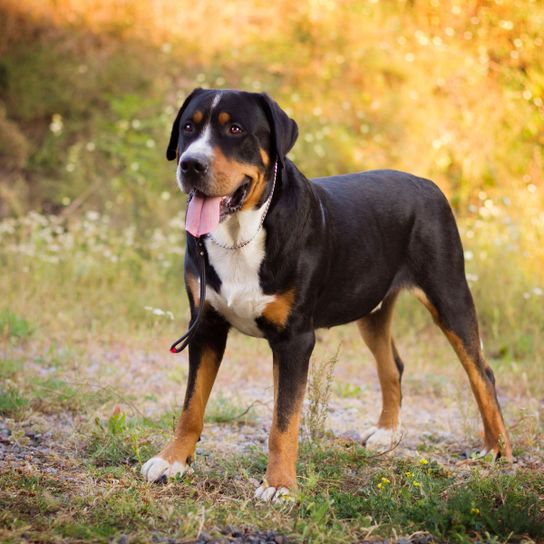
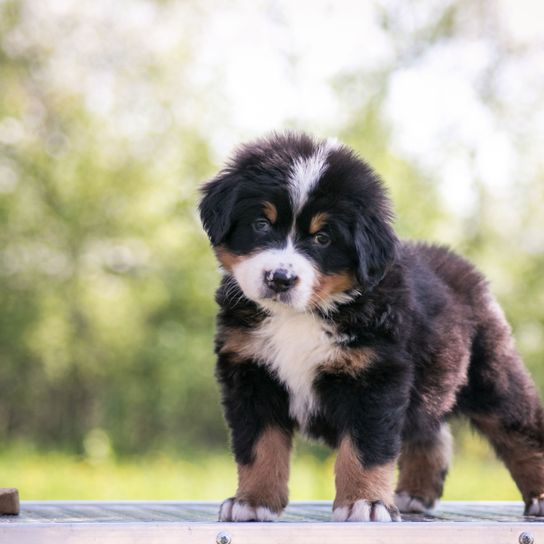
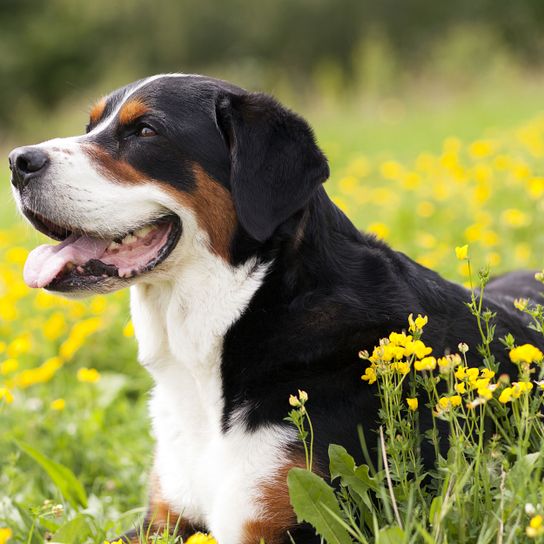
| Alternate Name | Great Swiss Mountain Dog, Greater Swiss Mountain Dog |
| Origin | Switzerland |
| Life expectancy | 6 - 9 years |
| Care requirements | low-maintenance |
| Activity level | average |
| FCI group | Swiss Mountain- and Cattledogs |
| AKC group | working group |
| KC group | working group |
Attitude, character and temperament of the breed
What are typical character traits of Swiss Mountain Dogs?
They are:
- loyal
- affectionate
- protective
Great Swiss Mountain Dog Temperament: calm and peaceful
Your dog will thrive when integrated into family life. It has a fast growth rate and often it is considered "grown up" too soon. "Cozy" is considered a good description of your four-legged friend. It is very sociable, has a great protective instinct and will be a reliable and safe partner for you. Even as Swiss Mountain Dog puppies, they need regular dog training together with you as the master or mistress, where it can let off steam and learn basic rules as well as social behavior. With increasing age it usually becomes calmer and even more relaxed. Even if it is often shy and reserved towards strangers, your dog is an absolute family dog and a good friend at your side due to its character traits.
Character
Usage

Health and breeding information
What are typical diseases of Swiss Mountain Dogs?
Unfortunately, hereditary diseases are not uncommon in your dog's breed, resulting in a shorter life expectancy compared to other large dogs. If you are buying a large Swiss Mountain Dog, it is important to discuss this with the previous owner or breeder. Typical diseases of the Swiss Mountain Dog are:
- Maldevelopment of the hip (called hip dysplasia).
- Cancer
- Diseases of the kidneys
- as well as developmental disorders of the elbow (elbow dysplasia).
Please note, however, that not every dog automatically suffers from these diseases.
What should be considered when breeding Swiss Mountain Dogs?
The most important thing to consider is hereditary diseases. An examination of possible diseases of the parent dogs should be carried out professionally by a veterinarian before breeding begins. Furthermore, there should be enough space and time for the dogs and puppies to be cared for. Great importance should also be attached to the recovery and convalescence phases of the bitches, which should also be discussed with the veterinarian. The guidelines for the delivery of the puppies, which should take place at the earliest from the age of 12 weeks, must also be observed.


What are the breed characteristics of Swiss Mountain Dogs?
The classic breed characteristics of Swiss Mountain Dogs are basically their appearance. With its tri-colored coat, floppy ears, and brown paws, your dog is not only a feast for the eyes, it also creates a distinguishing feature that not many dog breeds can boast.
Appearance and Coat of the Swiss Mountain Dog
Your Swiss Mountain Dog has a tri-colored coat of black, white, and brown. He has a strong and large build, which is why he is sometimes described as a very "leisurely" dog. His slow gait also contributes to this. Your dog has a long coat, consisting of an upper and a woolly undercoat, which means that cold temperatures do not cause him any problems. Heat, on the other hand, is very hard on him, which is why he needs plenty of shade and fresh water outside. Even though your dog will usually shed a lot of hair year-round, the amount of effort it takes to groom its coat is very minimal and uncomplicated. With his mostly black droopy ears and large brown paws - combined with his black googly eyes - he'll capture your heart in no time and convey a sense of deep friendship and unconditional trust.
How big does a Swiss Mountain Dog grow?
Basically, each dog is as different from the other as we humans are from each other. Bitches are slightly smaller than males, but the factors of sterilization and castration also play a large role here. Usually your dog will grow between 58 - 70 cm, depending on sex and of course genes.
How much does a Swiss Mountain Dog weigh?
Again, every dog is different. In addition to genetic and gender factors, this also depends on the dog's temperament. Like us humans, more leisurely dogs quickly put on a few pounds more than active ones that regularly exercise in nature, but you can assume a weight of about 36 - 50 kg.
How old does a Swiss Mountain Dog get?
Your dog will live between 6 - 9 years, depending on his fitness and state of health, but this depends very much on whether there are any hereditary diseases in its family. Furthermore, as with us humans, diet and exercise play a central role. Great importance should be attached to both when keeping your dog.
| Fur length | short |
| Fur | flat coated |
| Ear shape | Triangle |
| Tail | lang |
| Anatomy | muscular, massive, hefty |
| Size ♀ | 60 - 70 cm |
| Weight ♀ | 30 - 50 kg |
| Size ♂ | 60 - 70 cm |
| Weight ♂ | 30 - 50 kg |
| Suitable For | - |
Colors


Known Diseases
Elbow dysplasia (ED)
Elbow joint dysplasia is a chronic disease complex of the elbow joint of fast growing dog breeds.
Hip dysplasia (HD)
The hip dysplasia or hip joint dysplasia of the dog (HD) is a maldevelopment of the hip joint.
Cancer
May be common in older dogs.
Kidney disease
Symptoms of kidney disease in dogs: increased urination (polyuria) increased water intake. Inflammation of the mucous membrane of the mouth. Loss of appetite
Other large dogs
Useful Articles
You can find articles that might interest you in the dogbible blog to match your favorite breed.
Visit our magazineto stay up to date on dog trends.
To find out more, view our Privacy Policy
Find here the breed that suits you and find out what character traits it has. Here you can also learn more about the origin, size and weight of your favorite breeds.
Matching your favorite breed, you'll find articles that might interest you on the dogbible dog blog.
Cute dog breeds you need to meet
You want a poodle? Then read these things beforehand
Dog shows on TV - Our favourites
Hip joint and elbow dysplasia in dogs
Dry food or wet food for the dog - which is the better option
